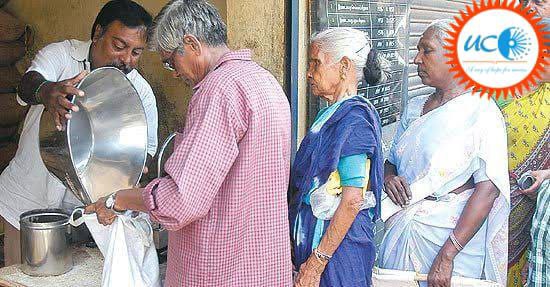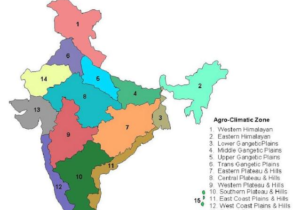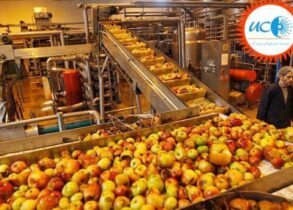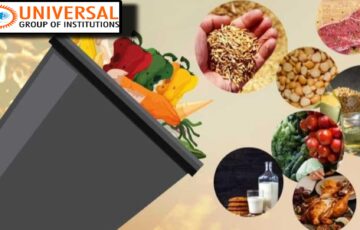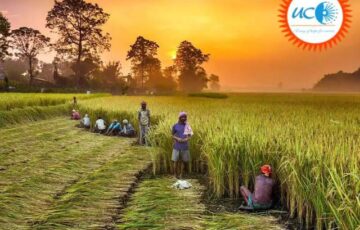Q.6) Reforms in Public distribution system (PDS) and Food Corporation of India (FCI) are two sides of the same coin. Discuss the statement along with suitable reforms in PDS and FCI.
Approach:
- Introduce the answer with a description of PDS.
- Mention role of FCI. In the body, discuss the common challenges in PDS and FCI.
- Next, discuss unique challenges of PDS and FCI in a table.
- Lastly, list a set of reforms to address issues in FCI and PDS.
- Conclude with summary of reforms to address common and distinct challenges.
The public distribution system (PDS) is a method for providing food staples and other necessities to the underprivileged at discounted rates. The PDS is overseen jointly by the federal and state governments. Through the Food Corporation of India, the Center manages bulk allocation, storage, and procurement (FCI). States assume operational responsibility for things like ration cards for beneficiary identification and fair pricing stores for last-mile delivery.
Reforms in PDS and FCI are two sides of the same coin due to the following set of related issues:
- Rice-Wheat Bias: PDS distribution as well as FCI procurements are biased towards rice and wheat.Low priority towards millets, vegetables, dairy harms nutrition security.
- Public Stockholding: Requirement to serve 67 per cent of the population under PDS (as per NFSA) and open-ended procurements by FCI create large public food stocks. Resulting subsidies and off-budget lending overburden public finances.
- Storage Infrastructure: The period of purchase-and-distribution window under PDS isconstrained on account of poor storage infrastructure. E.g., 1-month limit from end of harvesting period for purchase of coarse-grains.
- Quality: The first-in-first-out (FIFO) principle of grain distribution results in poor quality grains in PDS. E.g., poor quality rice in midday meals.
- Supply chain issues: There are leakages to the black market along with transit and storage loss. E.g., food enough to feed 8.2 crore people was wasted over the 2016-2020 period.
- Role of States: Decentralized procurement scheme for efficient procurement and distribution has had lukewarm response from states. As per a report by the Parliamentary Standing Committee, only 15 states have implemented DCP for rice and 8 states for wheat. But despite the related challenges, FCI and PDS also suffer from distinct issues such as:
- PDS suffers from inclusion-exclusion errors.
- Portability challenges result in exclusion of migrants.
- Digital Barriers exist. E.g., failure of biometric authentication due to unclear fingerprints.
- Food Stocks at FCI (50-90 million ton) are far in excess of requirements under NFSA (26 million ton)
- Middlemen limit price realization in FCI purchases, especially for small farmers.
- There is a regional tilt in purchases from northwestern states.
The problems in PDS and FCI can be resolved through the following reforms:
- Diversification: FCI’s purchases and distribution under PDS need to shift towards non-rice, non- wheat crops, such as millets and vegetables.
- Procurement function in rice and wheat should be handed over to states in a gradual manner, as per Shanta Kumar Committee’s recommendations on Decentralized Procurement Scheme.
- Universalization of distribution under PDS and assured procurement for all crops under FCI should be pursued. The Crop-basket of MSP-regime may need to be narrowed to avoid unsustainable fiscal burden.
- The private sector’s role should be expanded such as under the Private Entrepreneurs Guarantee (PEG) scheme for storage infrastructure, promotion of FPOs etc. SHGs must be used to distribute local cuisines-based food in PDS.
- Technological Interventions: Issues such as leakages, poor price realization, inclusion-exclusion can be addressed through technology. E.g., GPS-tracking, direct-benefit transfers, digital vouchers such as e-RUPI etc. Reforms in PDS and FCI are interrelated. Capacity-augmentation, decentralization and technological overhaul are the needs of the hour to address the common and distinct challenges

